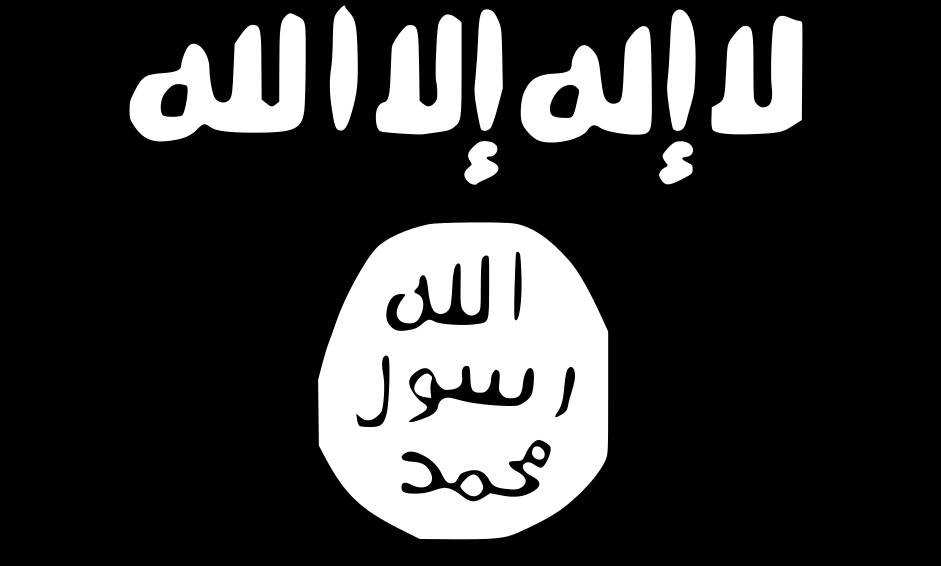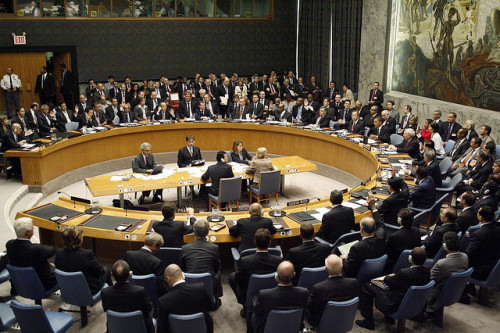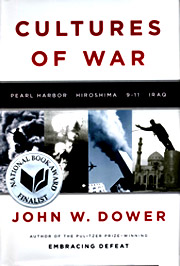Manea Interviews Galeotti on Hybrid War at SWJ
Sunday, August 23rd, 2015[by Mark Safranski, a.k.a “zen“]

Octavian Manea has another excellent installment of his interviews with warriors and scholars of war over at Small Wars Journal. In this case, Russian security and transnational crime expert, Professor Mark Galeotti of NYU and In Moscow’s Shadows blog.
Hybrid War as a War on Governance
As Clausewitz emphasized, we first need to understand exactly the nature of the war/threat that we are confronted with. What are the core features of this Russian approach on hybrid warfare?
I like to use the term non-linear warfare, in part because it means nearly nothing, and doesn’t come with the intellectual baggage of a term like hybrid warfare which, after all, it is a term that was designed to discuss how insurgents fight modern armies. We don’t have yet a proper vocabulary. The key thing is to realize the extent to which we all need to return to the essential – almost Clausewitzian – notion of war. In this context, war is a political instrument. War is one means of making the other side do what you want it to do, such as simply to remain part of your sphere of influence. What this approach is really about, in a way, is about placing kinetic military operations back in the toolbox. For a long time we thought them as entirely separate: diplomacy and politics on the one hand and warfare in the other. In some ways, warfare happens when the other things fail. What this doctrine is saying is no, let’s just appreciate that in fact we are talking about a whole spectrum of capabilities that can range from soft power suasion, to economic pressure, to increasingly tough diplomatic lines to a whole gradation of military operations that can range from sending 10 people into blocking a bridge, to sending a hundred people to help foment a local insurrection, to sending 10.000 people in a full-scale war. These instruments can and should be used together rather than as entirely separate pieces. In a way, the point of non-linear war is to bring war back in to the spectrum of modern statecraft, to appreciate that it is an acceptable instrument in Russian eyes and to make sure that policy-makers and policy executors realize the importance of the political impact. It is not about metrics of casualties inflicted, how many bombing raids you manage to launch, all the things that we often see replacing actual military success as an indicator. It comes back to the political effect and the use of the military as a political instrument.
Is NATO’s Eastern Flank vulnerable to non-linear warfare?
Here is the key thing: if we look at what is going on, none of the current uses of the Russian military power should be considered the standard blueprint. If they do anything direct in the Baltic States – and I don’t actually think that they will – it will not be Crimea 2.0 or Donbass 2.0, but something that will be tailored to the situation there, to their perception of the threats and to what they actually want to achieve.
Let’s look at the three current uses of the military force. In Crimea the role of the military was to create a fait accompli. The forces were there to act as symbols of Russian statehood. In Donbass, we have forces being deployed with these manufactured local insurrections to create chaos, not because for one moment the Russians are eager for the post-industrial decaying Donbass, but precisely as a way of putting pressure on Kiev. If we look at the Baltic States, the long-range bombers that Russia is flying there are not intended to actually launch a military attack, but to create a constant political as well logistical stress on NATO. Three very different uses of military forces. The military provides a series of capacities within a highly integrated military, political, economic, social media, intelligence campaign to achieve your ends.
Why this evolution towards comprehensiveness?
It reflects a variety of processes, but the most fundamental one is the extent to which traditional war, especially between the most advanced powers, is almost incomprehensible in terms of actual direct costs, in terms of economic and political costs. There is a low-intensity war between Russia and Ukraine, but at the same time I can take a plane in Moscow and I can fly to Kiev. There is trade crossing the border, both legal and very heavily illegal. We live in a world where the old notion of war, war as a binary process, where you are at war or you are at peace, means increasingly less. So on one hand, traditional warfare is much less a usable tool. On the other hand, there is the fact that all societies now are much more casualty-averse. Even today’s Russia is not Stalin’s Soviet Union, can’t treat people as ammunition. Old traditional warfare is hardly conceivable unless it is essentially civil war where rational calculations tend to go out of the window. This is less of a new way of war so much as a way of fighting a war in a new world. It is the world that it has changed rather than the tactics and the ideas.
It is in this changed context that everyone is talking about the need to interconnect government agencies and apply a whole-of-government approach. The very reason why they are doing that is that the world has become so heavily interconnected. Of course, at the same time one of the pathologies of complex bureaucracies is departmentalization. In this respect, the Russians have an advantage. Not because they don’t have huge monolithic and often deeply competitive bureaucracies – which they do – but precisely because, at the top at least, Russia remains a pretty authoritarian regime. You have a chief executive who can force coordination in a way that is much harder in a democratic society.
Galeotti has a nice observation about the political and military fungibility of organized crime networks in a globalized environment that I would like to highlight:
….Looking at the underworld shows what happens in voids of governance. Organized crime flourishes where governance fails and because no governmental system is perfect there always will be organized crime. But the scale, the size and the depth of criminal operations depend on the scale of the governance failure. Modern war is increasingly determined precisely by how one seeks to impact the other side’s governability (we see this trend particularly in Ukraine) and also how one can exploit the weaknesses of the other side’s governability. This is not new. One could look at WW2, at the campaign in Italy and the deals struck with the Mafia to provide intelligence and assistance in seizing Sicily. What is new is that what was seen as a disagreeable ad-hoc tactic is becoming the way the Russians are approaching full-spectrum warfare. It is just seen as another perfectly viable, legitimate opportunity. If we look at Crimea. when the “little green men” were deployed there, they were complemented by much less professional, much less uniformly uniformed, thuggish local “self-defense groups.” It has become clear that they were the gunmen of the local organized crime groups, pressed into service as auxiliaries. And when you look at the regime installed in Crimea from the premier down, it is very heavily penetrated by people from within the criminal world. The same pattern happened also in Donbass, where organized crime figures have become local warlords. My belief is also that some of the terrorist actions in the rest of Ukraine were carried out not directly by sympathizers of the rebellion or Russian government agents, but actually by organized crime figures paid by the Russians. Russia is ahead of the curve in global organized crime, where you have a political-criminal-business elite, that is not formed by Tony Soprano-like figures, but from businessmen who have a portfolio of interests that ranges from the essentially legitimate through to the grey and then wholly illegal activities. The boundaries between organized crime, intelligence operations, state-operations have become increasingly unclear.
Read the rest here.
Organized crime has as a strategic objective monopoly control over black market activities (or at least an ability to “tax” other criminals who engage in them) through coercion and force. At times, in an effort to protect these illegal monopolies from rivals or the state, organized crime networks will evolve their capabilities into terrorists, insurgents, political actors and hybrids of any of these. The reverse is also true; insurgencies like the Taliban or FARC can become increasingly “criminalized” as their political context changes or the need to raise revenues increases.
The artificial divisions between crime and war and politics is generally a taxonomic preference of the modern West and its Westphalian state myths. East Asia by contrast, have long had examples of “hybrid” criminal groups – the Green Gang, the Triads, the Dark Ocean Society, the Yakuza, the Binh Xuyen and so on. It was more or less normal for established criminal groups to be involved in politics or military affairs, at least on the local level. Those that could not manage this were simply bandits.









